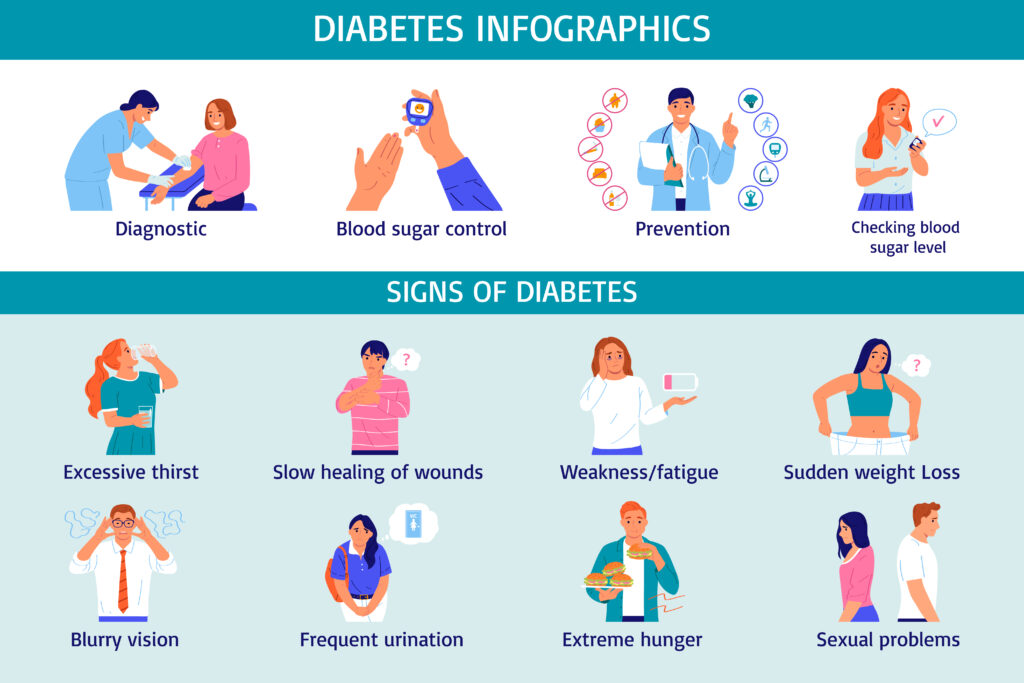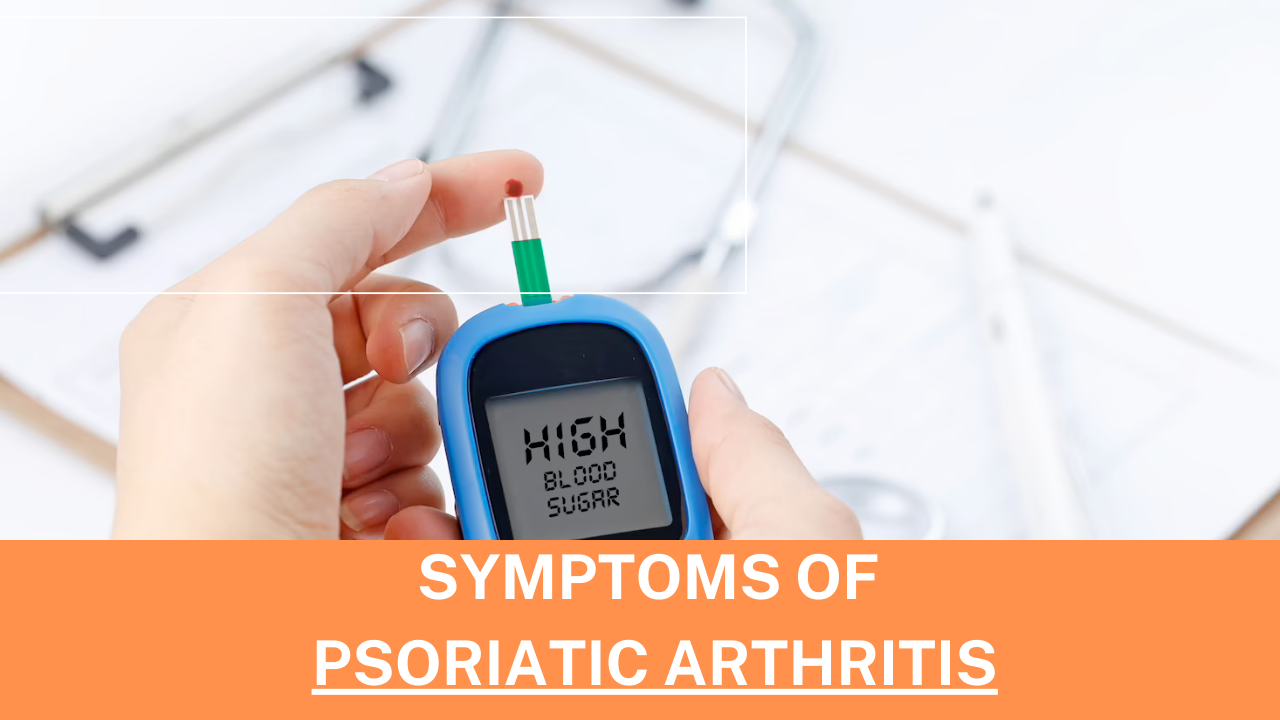Diabetes is one of the common disease that affects people of all ages either in their early or in middle ages. Diabetes are of different forms but Type 2 diabetes are the most common one. Diabetes symptoms start showing when our blood sugar level becomes too high, this happens when pancreas doesn’t make enough insulin or even when our body stops responding to the effects of insulin properly.
Our body gets Glucose or body sugar from our foods, diets and drinks. It is our body’s source of energy to perform task and functions. The glucose is carried out by our blood to every part or cells of body to provide energy.
Diabetes is a common disease and researches shows that approximately, 37.3 million people in United States have diabetes, in which 90%-95% is Type-2 diabetes.
Experts predict this number will rise to 643 million by 2030 and 783 million by 2045.
What are Early symptoms of diabetes?

Diabetes symptoms depends on our body’s blood sugar level. There are some early signs of diabetes or prediabetes, but these signs are not properly visible in most of the cases.
Some people might develop dark skin on certain parts of body which includes neck,armpits and groin, as an early signs of diabetes.
After certain period of time, these symptoms start to show in Type-1 and Type-2 diabetes :
- Increased thirst : A diabetic person tends to urinate multiple times a day which causes dehydration and you may feel increased thirst and dry.
- Frequent urination : The average person usually has to pee between four and seven times in 24 hours, but people with diabetes may go a lot more, which leads to dehydration and when you drink more water, you will go to pee again. This happens when our kidney doesn’t performs well because of high sugar level.
- Increased hunger : We get energy from the foods we eat as our body converts it to glucose. In the process, our body need insulin to use glucose, during the diabetes problem, our body doesn’t make enough or any insulin. And due to low insulin, our body or cells will loose its glucose and will have no energy. This can make us hungrier and more tired than usual.
- Fatigue : As our body will not be able to convert the glucose from food to energy, our body more often will start to feel fatigue and tired.
- Blurred vision: Due to improper level of fluids in our body may lead to swelling up of eye lenses which can cause blurred vision.
- Frequent infections : Yeast feeds and survive on glucose and having high level of presence in our body, makes it grow further. Infections can start to grow in any warm, moist fold of our skin, including fingers, under breast and in or around sex organs.
- Slow-healing sores or cuts: Over time, high blood sugar can affect your blood flow and cause nerve damage that makes it hard for your body to heal wounds.
- Unintended weight loss : When our body doesn’t converts food into energy to perform functions, it will start using or burning muscle fat to get energy. This will lead to certain weight loss overtime even if you haven’t changed your diet routine or plan.
- Tingling, pain, or numbness in the hands/feet (type 2)
- Headache and Dizziness
What Causes Diabetes ?
The exact cause of early diabetes is unknown. But family history and genetics appear to play an important role.
Diabetes also depends on what food we eat and what diet routine we follow, as our body gets energy from the food. Insulin allows sugar to enter your cells — and lowers the amount of sugar in your blood.
When you have prediabetes, the process of insulin secretion doesn’t work as well from your gland. As a result, instead of fueling your cells, sugar starts to build up in bloodstream, causing diabetes.
How To Prevent Diabetes
A healthy lifestyle choices and a good diet plan about what and when you eat can help treat or control early diabetes.
- Eat healthy foods.
- Perform daily exercise and activities.
- Loose excess weight.
- Quit Smoking
Common FAQs
There is no permanent cure for diabetes but researchers are working on it. But on the other hand you can still control your diabetes or sugar level by taking care of your routine and diet plans.
Avoid refined carbohydrates, which raise blood sugar. You also want to avoid the saturated fat found in fatty meats, full-fat dairy, and fried foods, as people with type 2 diabetes have an increased risk of getting heart disease.
Fruits which are high in sugar but low in fiber should be avoided. These include grapes, bananas, mangoes, and dried fruit such as raisins and apricots.



